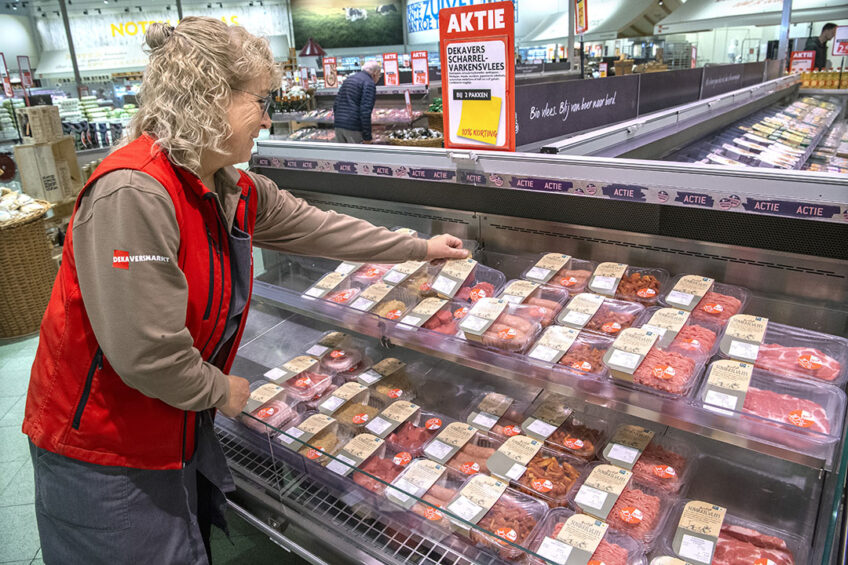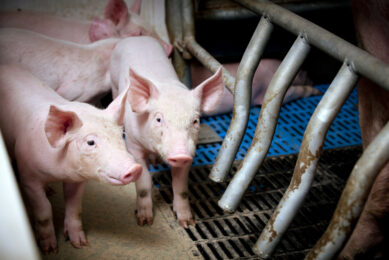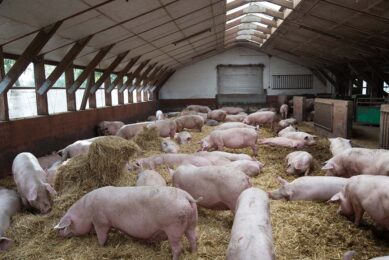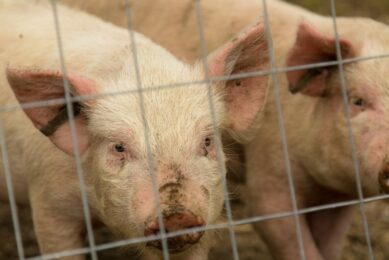Premium price for ‘animal-friendly’ pork label?

Over 30% of British pork consumers would consider paying a price premium for fresh pork products labelled as “animal friendly,” a new British study has found.
The research team found that consumers are also willing to pay more for pork which is labelled as “local” and “low-fat,” while an “organic” label is less valued. The research was carried out by scientists from Scotland’s Rural College (SRUC) and was published in the international open-access journal Agribusiness, in late January 2022.
How do customers respond to pork marketing info?
The researchers looked at how customers respond to marketing information on fresh pork to determine the best ways to promote animal-friendly meat products. They assessed consumers’ preference and willingness to pay for fresh pork products with various labels, including “animal friendly,” “local,” “low-fat,” and “organic”.
They then investigated whether there was any trade-off between the labels or if they complemented each other, to see if there was a benefit to bundling animal welfare with other desirable food attributes. They also looked at whether their findings varied between “pro-welfare,” “welfare-reluctant” and “indifferent” customers.
Who would pay more for animal-friendly pork?
The research found that pro-welfare customers (39% of pork consumers) were willing to pay a price premium for animal-friendly pork (£3.92 or € 4.73 for 300g). The price premium increased by 60% if the product was also labelled as “local,” 39% if it was also labelled as “low fat,” but only 2% if the “organic” label was added.
The welfare-reluctant customers (41% of pork consumers) preferred conventional pork, and the use of the labels “organic,” “local” and “low fat” were ineffective in increasing the demand for animal-friendly pork.
The remaining 20% of customers were indifferent as to whether the labels “animal friendly,” “organic” or “local” were used, but would pay a premium of £1.14 (€ 1.38) per 300g of fresh pork if the “animal friendly” and “organic” labels were bundled together.
Useful insights into labelling pork in supermarkets
In a news release on the website of the SRUC, research economist Faical Akaichi, said: “This research provides marketers of animal-friendly pork with useful insights for designing labelling and pricing strategies that can help them to better position their products and tailor more efficient marketing campaigns to the needs of animal welfare-minded consumers.
“Although the label “animal friendly” is the most valued label by UK consumers, the results suggest that consumers’ positive values for other desirable food attributes should be considered when pricing and designing positioning strategies for animal-friendly pork products.
“The results will also be useful for policymakers who are interested in designing policy approaches, such as the use of food labelling, to promote sustainable and healthy diets and make the food selection environment more conducive to healthier and more socially and environmentally sustainable choices.”
The article “Bundling food labels: What role could the labels “Organic,”, “Local” and “Low Fat” play in fostering the demand for animal-friendly meat” was authored by Faical Akaichi, Klaus Glenk and Cesar Revoredo-Giha, all attached to Scotland’s Rural College (SRUC), Edinburgh, Scotland, UK.











